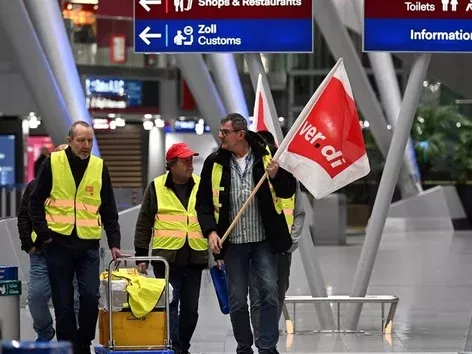In the intricate web of international relations, trust is a fragile commodity. Recent revelations have unveiled a shadow looming over Europe’s railways: Russia’s clandestine attempts to sabotage vital transportation networks. The warning sounded by Prague sends shivers down the spine of European nations, underscoring the insidious nature of geopolitical maneuvering. As the intricate game of power plays unfolds, the safety and stability of European railways hang in the balance.
Table of Contents
ToggleUnveiling the Warning:
Prague’s alarm bells reverberate across the continent, shedding light on a covert scheme with potentially catastrophic consequences. The gravity of the situation cannot be overstated; it’s a wake-up call to the vulnerability of critical infrastructure. By highlighting Russia’s nefarious intentions, Prague illuminates the dark underbelly of international relations, where strategic interests collide and innocent lives are put at risk.
Understanding Russia’s Strategy:
To comprehend Russia’s subversive tactics, one must delve into the intricate fabric of its geopolitical ambitions. With a history steeped in espionage and covert operations, Russia has mastered the art of asymmetric warfare. By targeting European railways, Russia seeks to sow discord, disrupt trade routes, and assert its dominance on the global stage. This calculated move underscores the ruthlessness of modern geopolitics, where every avenue is exploited to gain a strategic advantage.
The Implications for European Security:
The ramifications of Russia’s sabotage attempts extend far beyond the realm of transportation. European security hangs in the balance as the continent grapples with an ever-evolving threat landscape. The specter of sabotage looms large, casting a shadow over the principles of peace and stability that underpin the European project. In the face of such brazen aggression, unity and vigilance are paramount if Europe is to safeguard its sovereignty and protect its citizens.
Challenges in Detecting and Preventing Sabotage:
Detecting and preventing sabotage on European railways present a Herculean challenge for security agencies across the continent. The clandestine nature of such operations makes them difficult to detect, let alone thwart, without robust intelligence-gathering mechanisms in place. Moreover, the interconnected nature of European railways complicates matters further, requiring seamless coordination and cooperation among member states. As the threat of sabotage looms larger, Europe must bolster its defenses and adapt to the changing landscape of hybrid warfare.
The Role of Technology in Countering Threats:
In the age of digitalization, technology emerges as a double-edged sword in the fight against sabotage. On one hand, advanced surveillance systems and predictive analytics offer valuable tools for detecting suspicious activities and preempting potential attacks. On the other hand, the increasing reliance on digital infrastructure exposes vulnerabilities that adversaries can exploit with devastating consequences. Striking the right balance between innovation and security is imperative as Europe navigates the treacherous waters of 21st-century warfare.
Strengthening International Cooperation:
Faced with a common adversary, European nations must band together in a united front against Russian aggression. Strengthening international cooperation and intelligence-sharing mechanisms is essential to staying one step ahead of the saboteurs. By pooling resources and expertise, Europe can enhance its collective resilience and send a clear message to those who seek to undermine its stability. In the face of adversity, solidarity becomes a powerful weapon in the arsenal of defense.
The Imperative of Diplomacy:
Amidst escalating tensions, diplomacy emerges as a beacon of hope in the fog of uncertainty. Engaging in dialogue and negotiation channels the energies of conflict into avenues of compromise and reconciliation. While the road to diplomacy may be fraught with obstacles, it remains the most viable path towards resolving disputes and de-escalating crises. By fostering a climate of trust and cooperation, Europe can defuse tensions and pave the way for a more secure and prosperous future.
Conclusion:
As Europe grapples with the specter of sabotage on its railways, the stakes have never been higher. The warning sounded by Prague serves as a poignant reminder of the challenges that lie ahead and the imperative of decisive action. In the face of adversity, Europe must stand united, fortified by the principles of democracy, freedom, and justice. Only then can it confront the threats that lurk in the shadows and emerge stronger on the other side.










